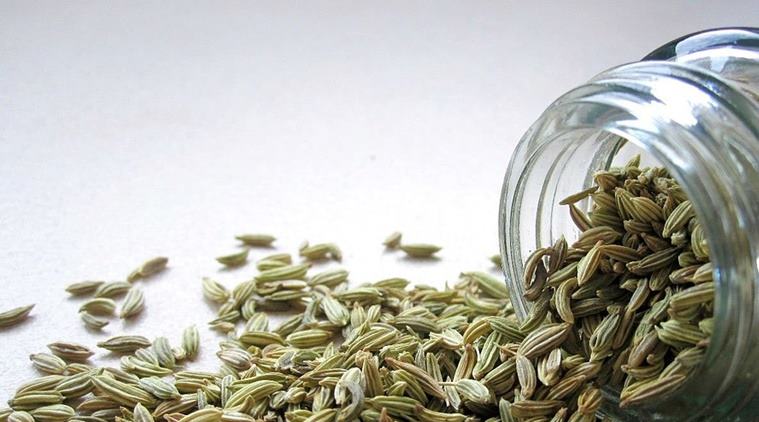Did you know there are many other benefits of fennel seeds, which are anti-inflammatory in nature and offer antibacterial benefits?

It’s common in India to chew fennel seeds or saunf after a meal. It cleans your teeth and freshens your breath. But besides that, did you know there are many other benefits of fennel seeds, which are anti-inflammatory in nature and offer antibacterial benefits? An antioxidant, Anethole, one of the phytochemicals found in fennel, blocks several inflammatory agents in the body.
They are also loaded with the mineral manganese, which is important for enzyme activation, metabolism, cellular protection, bone development, blood sugar regulation, and wound healing.
Aids digestion
The essential oils present in fennel seeds trigger the secretion of digestive juices and enzymes which in turn aids the process of digestion. This helps reduce bloating of the belly due to flatulence or excessive gas formation. The seeds help neutralise the acidity of the stomach which can sometimes increase due to improper dietary habits, unregulated lifestyle and weight. Acidity causes heartburn and having fennel after meals can reduce the chances of it happening. This property of fennel makes it a common ingredient in anti-acidity medications.
ALSO READ | Keep stomach calm with ginger, fennel seeds
Fights against anaemia
The main component of haemoglobin is iron and fennel is a good source of it and an amino acid called histidine. These help in the manufacture of haemoglobin. Histidine stimulates the manufacture of haemoglobin and the other constituents of blood.
Lowers body heat
The best way to consume fennel seeds is by soaking them in water, strain them in the morning and have the water in the morning to lower body heat. It is regarded as one of the best means to lower internal body heat.
Controls cholesterol
Since high levels of cholesterol can be harmful to the body as it causes various health problems such as heart attacks, strokes and artherosclerosis, fennel seeds is a good option as the fibre present in it helps keep cholesterol levels low in the blood.
ALSO READ | Diabetes-friendly nut: How many almonds should you consume daily?
Works against high blood pressure
To reduce high blood pressure, fennel seeds which are an essential source of potassium can help. It reduces the tension on the blood vessels by dilating them. This results in the reduction of blood pressure. Potassium regulates the water balance as well as the acid-base balance in our body.
A study published in World Journal of Pharmacy and Pharmaceutical Sciences, in which mice were treated with an extract made from mentholated fennel seeds, found that, at some dosage levels, this extract reduced blood glucose levels at a rate comparable to that of standard antihyperglycemic medications.
ALSO READ | Diabetes: What you should eat to keep your blood sugar level in control
Eating a diet high in fibre, particularly soluble fibre, may help improve blood sugar levels and thereby reduce the risk of developing type 2 diabetes. It is also claimed that beta-carotene, another antioxidant in fennel seeds, may help lower cholesterol levels in patients with type 2 diabetes. Studies have also demonstrated that fennel may have anti-cancer properties.
How to consume it?
Fennel can be eaten raw or used it as a spice. Even fennel oil are used as flavouring agents in foods and beverages including broths. Fennel bulbs could also be added in salads.
While fennel is safe when taken in appropriate doses for a short period of time, people who are sensitive to certain plants like carrot, celery or mugwort may develop allergic reactions to it, as per WebMD.
Source: Read Full Article
